Description
ABSTRACT
Right to Dignity and the Legal Regime of Wages Without Work Under the Nigerian Labour Act: A Quest for Human Rights Approach
Jacob Abiodun Osuntogun*
This paper interrogates the legal regime of wages without work under the Nigerian Labour Act and how it violates other rights, particularly the rights to work and dignity. Money is not the main reason for work. Work is the ‘fundamental to the dignity of a person’. It is done in obedience to a divine injunction to till the ground and dominate it. In that domination lays the dignity of man. This article discusses the approach of the Nigerian Labour Act to the issue of wages and work. It notes that the Nigerian Labour Act adopts the regime of wages without work which prioritizes wages over work. It means if the employer has paid wages, the employee could not complain if he is idle and left with no work to do. The paper identifies the Common law as the reason behind this legislative provision. It discusses how the wages without work regime of the Labour Act violates human rights, such as the right to work and the right to human dignity. Although, the paper notes that the common law attempts to ameliorate the hardship of the principle by shifting the general rule to accommodate some exceptions. The paper insists that the exceptions could not go far unless the human rights approach is adopted and s17 (1) amended to reflect the human rights approach. The paper notes that the justification for this proposed amendment is that it will help Nigeria meet its obligations under the regional and international human rights treaties.
Keywords: Right to Dignity, Wages, Labour Act, Nigeria.
INTRODUCTION
The importance of work as a catalyst to human dignity cannot be over emphasized. Work has been1 defined as ‘activity involving mental or physical effort done to achieve a purpose or result’. Work is done to accomplish a purpose, and that purpose dignifies humanity. Consequently, Pope Francis 2 argues that ‘where there is no work, there is no dignity. Ironically, money has twisted the essence of work. Thus, he argues further that non-availability of work is due to ‘an economic system centred on3 an idol called “money”. Money is not the main reason for work. Work is the ‘fundamental to the 4 dignity of a person’. It is done in obedience to a divine injunction to till the ground and dominate it. In that domination lays the dignity of man.
* LL.B (University of Lagos NIGERIA), BL, LL.M (Obafemi Awolowo University NIGERIA), MA (University of Ibadan NIGERIA), LL.M (University of Pretoria) PhD, University of Witwatersrand. Senior Lecturer, Department of Commercial and Industrial Law, University of Ibadan, Nigeria.
- See Oxford Lexico Dictionary <www.lexico.com/definition/work> accessed 28 January 2022.
- See Pope Francis, ‘Where there is no work, there is no dignity’ (Lastampa, 2019). accessed 28 January 2022.
- ibid.
- ibid.

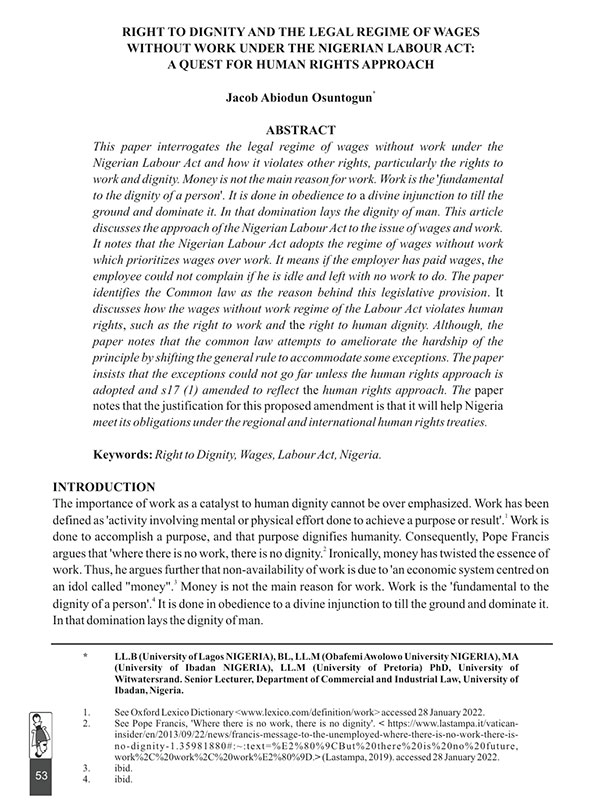
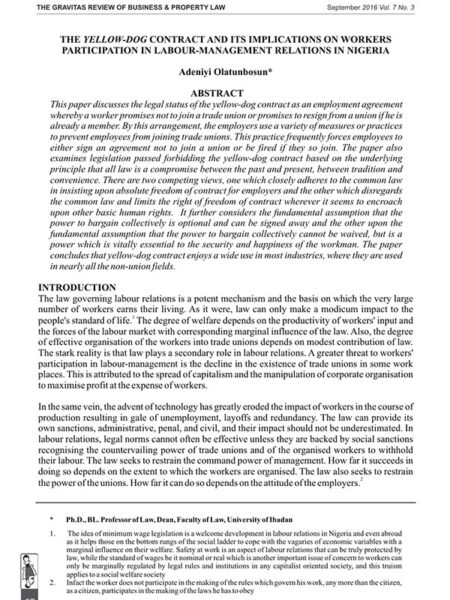
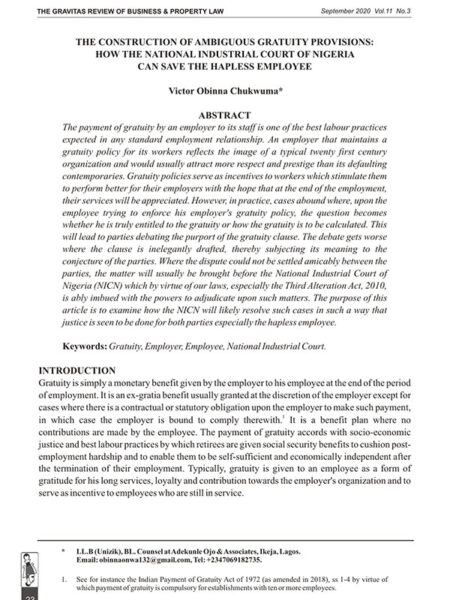
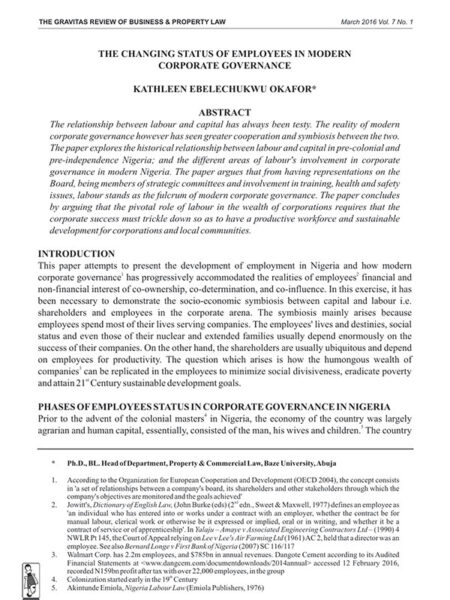
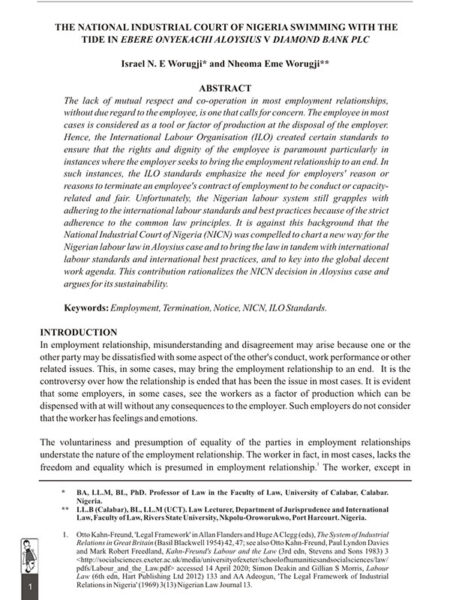


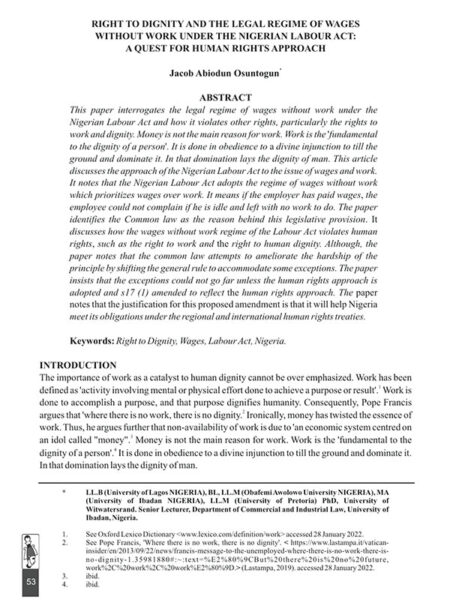
Reviews
There are no reviews yet.